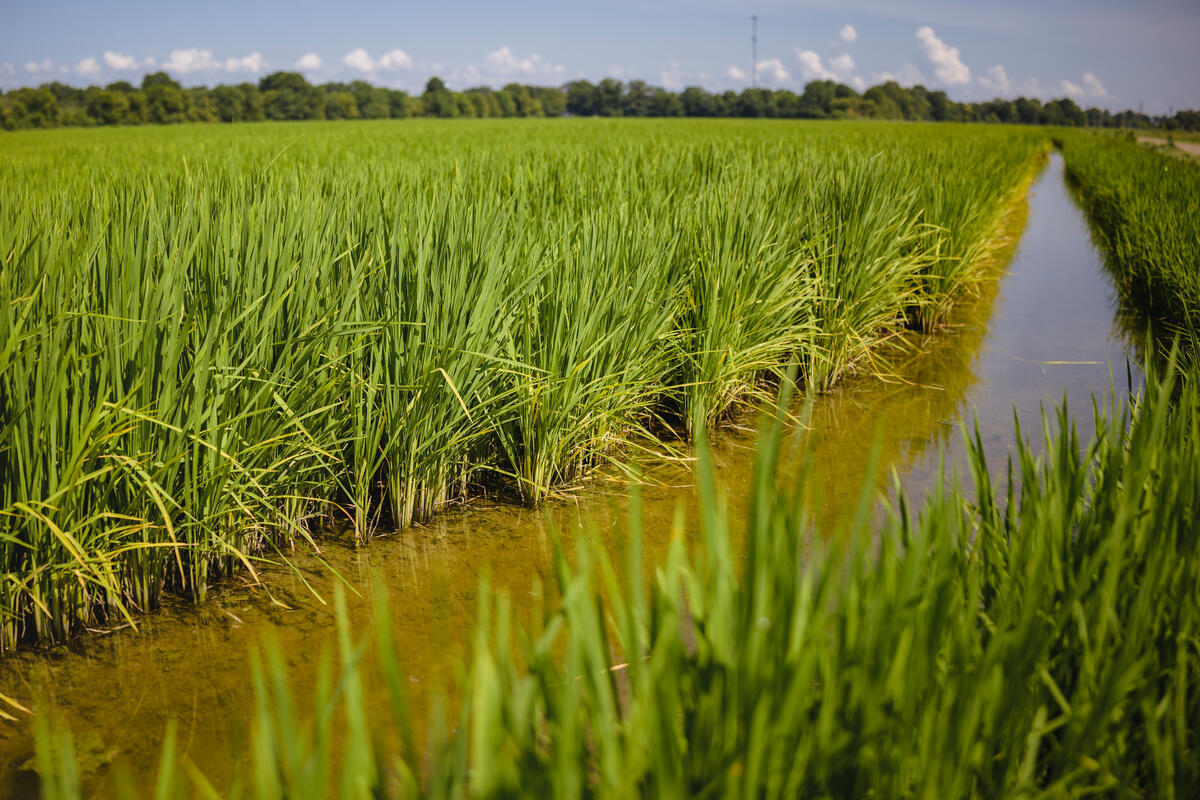World Wildlife Fund effort to protect wildlife habitats from agricultural expansion takes root as the Delta Ag Alliance-a group of innovative farmers, startups, retailers, and investors working together to transition existing farmland from commodity row crops to specialty food crops.
NORTHAMPTON, MA / ACCESS Newswire / October 15, 2025 / If just 3% of existing farmland in the mid-Mississippi Delta (eastern Arkansas, western Tennessee, and northwestern Mississippi) could be converted from commodity crops to specialty food crops by 2034, it would result in an extra $3.2 billion in annual farmgate revenue across the region. According to a new report from World Wildlife Fund's (WWF) Markets Institute, this transformation would not only boost an economically distressed area; it would strengthen US food security and protect wildlife habitat.
"Right now, most of America's fruits, vegetables, and nuts come from one place-California. But as droughts and fires intensify, relying on one state to produce most of our food is a gamble we can no longer afford. If we don't plan ahead, the fallback will be plowing over more land, threatening critical wildlife habitat," said Julia Kurnik, Senior Director of Innovation Startups at World Wildlife Fund. "Or we have the option to act now to support and invest in a too-long-neglected region with plenty of existing farmland and generations of agriculture experience, knowledge, and innovation. The mid-Mississippi Delta is ready, willing, and able to step up to secure our food supply; it's time for the rest of the country to take notice."
Over the past six years, WWF's Markets Institute and AgLaunch, a farmer-centric innovation platform, have convened experts, facilitated connections with buyers and retailers, and researched the viability of shifting specialty crop production to the mid-Delta region as part of its Next California project. The next phase of the project will be led by AgLaunch, working in partnership with the Center for MS Food Systems. The newly branded Delta Ag Alliance will provide a regional framework for policies, alignment, and funding to expand the AgLaunch farmer network, launch new investment models, accelerate development of new companies, and support farmers in the transition. WWF will stay involved in a supporting role.
"Our work right now in the Delta is ground-zero for transforming the global food system in an equitable way through innovation and new business models that start with the farmers," said Pete Nelson, president of AgLaunch. "What makes this region uniquely powerful isn't just our water, land, and logistics-it's the growing network of innovative farmers, the development of robotics and cutting-edge agtech, and a proactive investment ecosystem that fuels bold experimentation. The Delta Ag Alliance is showing how regions can build on their strengths, empower farmers, and create models for thriving, equitable rural economies."
WWF's Next California Phase III report details the success of the first pilot project with Delta Harvest to test out an easier-to-transition specialty rice crop that uses existing equipment but yields a higher premium. Three farmers planted more than 20 varieties of specialty rice in 2024, delivering 3.56 million pounds of rice to the first buyer. Farmers earned an average revenue of $1,250 per acre from the specialty rice, making an average $100 per acre profit. This compares to a loss on generic medium-grain white rice in the same year. This first pilot expanded from 750 acres in 2024 to 1,500 acres in 2025.
"Small farmers in our region are barely able to make ends meet or even losing money growing commodity crops. No matter how dedicated a person is, this is not sustainable," said Noel Didla, co-steward of the Center for MS Food Systems. "Specialty crops have the potential to turn that around, but it requires initial risk and investment that we can't ask farmers to take on alone. The role of the Delta Ag Alliance is to de-risk: connect with buyers, build the infrastructure, and ensure farmers have access to the latest research and innovation. This is something we have to do together."
The report also showcases the stories of innovative farmer-entrepreneurs who are finding success in the transition to specialty crops and includes details of the Delta Ag Alliance's 10-year roadmap. Achieving this scale of transition will depend on building a supportive business environment that stimulates new agtech startups, fosters farmer-driven innovation, and creates the infrastructure and investment networks needed to make specialty crop production both profitable and scalable. Previous reports are available here: Next California Phase I: Investigating Potential in the mid-Mississippi Delta River region (2020) | Next California Phase II: Preparing for Action (2024).
Media Contact
Lorin Hancock | Lorin.Hancock@wwfus.org
About World Wildlife Fund
WWF is one of the world's leading conservation organizations, working for 60 years in nearly 100 countries to help people and nature thrive. With the support of 1.3 million members in the United States and more than 5 million members worldwide, WWF is dedicated to delivering science-based solutions to preserve the diversity and abundance of life on Earth, halt the degradation of the environment, and combat the climate crisis. Visit worldwildlife.org to learn more; follow @WWFNews on X, formerly known as Twitter, to keep up with the latest conservation news; and sign up for our newsletter and news alerts here.

© WWF-US/Ashleigh Coleman
View additional multimedia and more ESG storytelling from World Wildlife Fund on 3blmedia.com.
Contact Info:
Spokesperson: World Wildlife Fund
Website: https://www.3blmedia.com/profiles/world-wildlife-fund
Email: info@3blmedia.com
SOURCE: World Wildlife Fund
View the original press release on ACCESS Newswire:
https://www.accessnewswire.com/newsroom/en/business-and-professional-services/future-us-food-security-is-a-3.2-billion-opportunity-for-farmers-1087173
